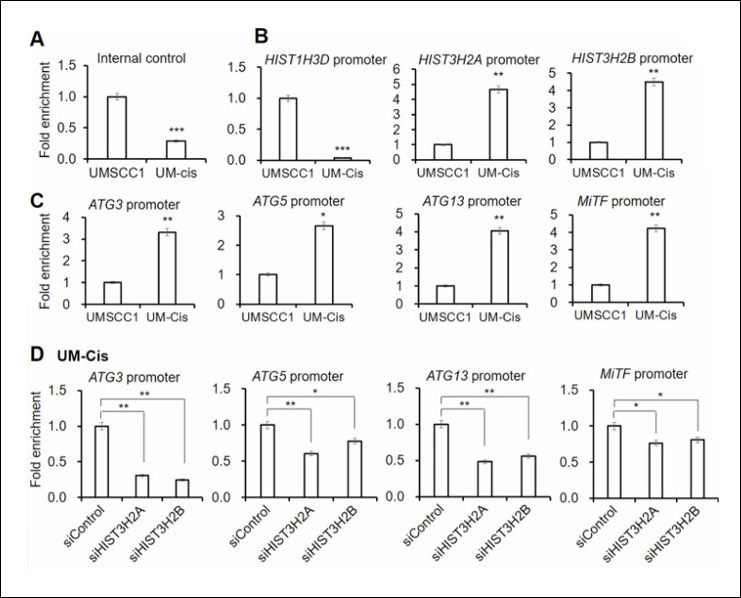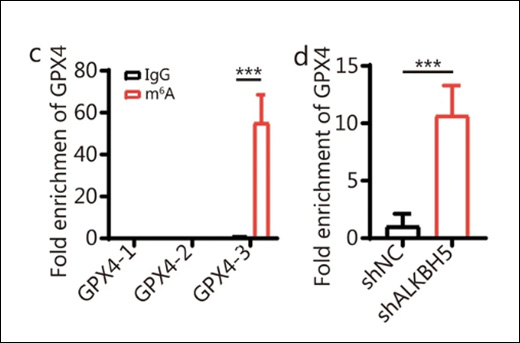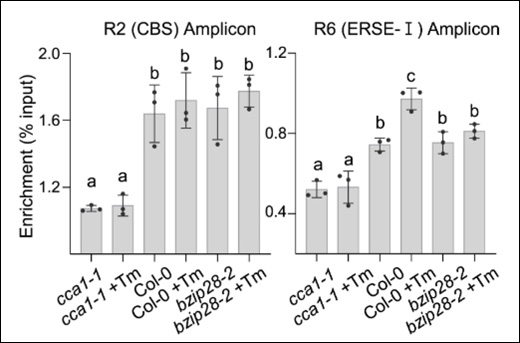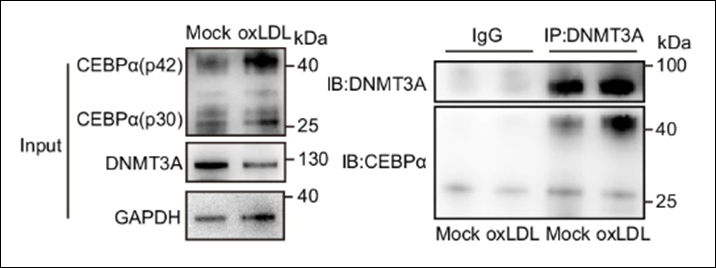Huang L et. al. (December 2023). WTAP regulates autophagy in colon cancer cells by inhibiting FLNA through N6-methyladenosine Cell Adh Migr. 17(1):1-13.
This study explores the role of WTAP in colon cancer and its impact on autophagy regulation. The findings demonstrate that WTAP upregulation in colon cancer cells promotes proliferation, inhibits apoptosis, and inhibits autophagy by regulating FLNA through N6-methyladenosine modification, highlighting the potential therapeutic implications for colon cancer.
(Products Used: EpiQuik m6A RNA Methylation Quantification Kit (Colorimetric))
Su Y et. al. (May 2023). Epigenetic Histone Methylation of PPARγ and CPT1A Signaling Contributes to Betahistine Preventing Olanzapine-Induced Dyslipidemia Int J Mol Sci. 24(11)
This study investigates the epigenetic mechanisms underlying the preventive effects of betahistine on olanzapine-induced dyslipidemia and fatty liver in a rat model. The results show that betahistine co-treatment modulates histone methylation, specifically enhancing H3K4me binding on the promoter of the Cpt1a gene and H3K9me binding on the promoter of the Pparg gene, thereby attenuating abnormal adipogenesis and lipogenesis by inhibiting the PPARγ pathway-mediated lipid storage and promoting CP1A-mediated fatty acid oxidation.
(Products Used: EpiQuik Tissue Methyl-Histone H3K9 ChIP Kit, EpiQuik Tissue Methyl-Histone H3K4 ChIP Kit, EpiQuik Tissue Methyl-Histone H3K27 ChIP Kit)
Li Z et. al. (June 2023). KDM2A interacts with estrogen receptor α to promote bisphenol A and S-induced breast cancer cell proliferation by repressing TET2 expression Ecotoxicol Environ Saf. 262:115132.
The article explores the role of KDM2A, estrogen receptor alpha (ERα), and TET2 in the proliferation of estrogen receptor-positive breast cancer cells induced by bisphenol A (BPA) and bisphenol S (BPS). The findings reveal that BPA/BPS treatment increases KDM2A expression, which leads to histone demethylation, suppression of TET2-mediated DNA hydroxymethylation, and enhanced cell proliferation, highlighting a potential feedback circuit involving KDM2A/ERα-TET2-DNAhm in BPA/BPS-induced breast cancer cell growth.
(Products Used: EpiQuik Total Histone Extraction Kit, Epigenase JARID Demethylase Activity/Inhibition Assay Kit (Colorimetric), MethylFlash Global DNA Methylation (5-mC) ELISA Easy Kit (Colorimetric))
De Luca C et. al. (June 2023). Retrotransposon LINE-1 bodies in the cytoplasm of piRNA-deficient mouse spermatocytes: Ribonucleoproteins overcoming the integrated stress response PLoS Genet. 19(6):e1010797.
The study investigates the persistence of retrotransposon LINE-1 (L1) in the absence of piRNAs, a defense mechanism against transposable elements. The findings reveal that L1 forms cytoplasmic bodies and interacts with various RNA and protein components, including stress granule proteins and negative regulators of RNA expression, while maintaining stability and translation of its own mRNAs, highlighting mechanisms that enable L1 propagation.
(Products Used: PRKRA Polyclonal Antibody)
Sun Y et. al. (June 2023). Multigenerational genetic effects of paternal cadmium exposure on ovarian granulosa cell apoptosis Ecotoxicol Environ Saf. 262:115123.
The study investigates the multigenerational genetic effects of paternal cadmium (Cd) exposure on ovarian granulosa cell (GC) apoptosis. The findings demonstrate that paternal Cd exposure leads to increased apoptotic rates in F1 and F2 ovarian GCs, accompanied by changes in the expression of apoptosis-related genes, miRNAs, and methylation modifications, highlighting the intergenerational and transgenerational effects of paternal Cd exposure on ovarian GC apoptosis.
(Products Used: Methylamp DNA Modification Kit)
Liu W et. al. (June 2023). Blockade of IL-6 signaling alleviates atherosclerosis in Tet2-deficient clonal hematopoiesis Nat Cardiovasc Res. (2):572–586.
The article investigates the role of IL-6 signaling in the development of atherosclerosis in Tet2-deficient clonal hematopoiesis (CH). The study demonstrates that blockade of IL-6 signaling reverses atherosclerosis promoted by Tet2 CH by reducing monocytosis, lesional macrophage burden, and expression of macrophage colony-stimulating factor 1 receptor (CSF1R), highlighting IL-6 as a potential therapeutic target for CH-driven cardiovascular disease.
(Products Used: Methylamp Methylated DNA Capture (MeDIP) Kit)
Cai J et. al. (July 2023). Xiao Chai Hu Tang alleviates the pancreatic tumorigenesis via improving the mtDNA N6-Methyladenine modification mediated mitochondrial dysfunction in Syrian hamster model Phytomedicine. 116:154840.
The study investigates the therapeutic effects of Xiao Chai Hu Tang (XCHT) on pancreatic tumorigenesis and its underlying mechanisms. Using a Syrian hamster model, the results demonstrate that XCHT inhibits the occurrence and development of pancreatic cancer by improving ALKBH1 expression, reducing mitochondrial DNA (mtDNA) N6-methyladenine (6mA) modification, and regulating oxidative stress and expression of mtDNA coded genes, highlighting the potential of XCHT as a therapeutic approach for pancreatic cancer.
(Products Used: MethylFlash Global DNA Methylation (5-mC) ELISA Easy Kit (Colorimetric))
Girija A et. al. (June 2023). Cystathionine γ-synthase expression in seeds alters metabolic and DNA methylation profiles in Arabidopsis Plant Physiol.
In this study, Arabidopsis seeds expressing a modified form of the cystathionine γ-synthase gene were examined to investigate the impact on metabolic and DNA methylation profiles. The expression of this gene resulted in elevated methionine content, along with changes in amino acids, sugars, protein, and starch levels. Concurrently, alterations in DNA methylation patterns were observed, leading to accelerated senescence, increased monomer synthesis, and enhanced monomer transport from leaves to seeds. These findings shed light on the role of methionine in DNA methylation, gene expression, and the overall metabolic profile of the plant.
(Products Used: MethylFlash Global DNA Methylation (5-mC) ELISA Easy Kit (Colorimetric))
Laqqan MM et. al. (May 2023). Impact of waterpipe and tobacco cigarette smoking on global DNA methylation and nuclear proteins genes transcription in spermatozoa: a comparative investigation Inhal Toxicol. :1-10.
In this study, the impact of waterpipe smoking on spermatozoa was compared to cigarette smoking and nonsmoking, focusing on global DNA methylation, DNA fragmentation, and transcription levels of nuclear protein genes. Waterpipe smokers exhibited increased global DNA methylation, protamine deficiency, DNA fragmentation, and higher transcription levels of PRM1, PRM2, and H2BFWT genes compared to cigarette heavy smokers and nonsmokers, suggesting detrimental effects on sperm quality and potential reproductive health.
(Products Used: MethylFlash Methylated DNA 5-mC Quantification Kit (Colorimetric))
Kim SY et. al. (June 2023). Maternal effect senescence via reduced DNA repair ability in the three-spined stickleback Mol Ecol.
This study examines maternal effect senescence in three-spined stickleback fish and investigates the potential molecular mechanisms involved. The findings indicate that older females exhibit reduced transfer of DNA repair gene transcripts to their eggs, which may contribute to increased offspring mortality and developmental abnormalities, suggesting a link between maternal age, DNA repair capacity, and offspring viability.
(Products Used: EpiQuik 8-OHdG DNA Damage Quantification Direct Kit (Colorimetric))
Man K et. al. (April 2023). Epigenetic Reprogramming via Synergistic Hypomethylation and Hypoxia Enhances the Therapeutic Efficacy of Mesenchymal Stem Cell Extracellular Vesicles for Bone Repair Int J Mol Sci. 24(8)
This study explores how combining hypomethylation and hypoxia enhances the therapeutic potential of mesenchymal stem cell extracellular vesicles (EVs) for bone repair. The findings suggest that pre-treatment of stem cells with specific agents improves the epigenetic functionality and osteogenic properties of EVs, making them more effective for bone regeneration.
(Products Used: EpiQuik In Situ Histone H3K9 Methylation Assay Kit, EpiQuik In Situ H3K9 Acetylation Assay Kit)
Wang J et. al. (June 2023). H2S Alleviates Neuropathic Pain in Mice by Nrf2 Signaling Pathway Activation J Mol Neurosci.
This study investigates the potential of hydrogen sulfide (H2S) therapy in alleviating neuropathic pain. The findings suggest that H2S treatment reduces pain symptoms and activates the Nrf2 signaling pathway in specific cells, offering a potential mechanism for its neuroprotective effects.
(Products Used: Epigenase JARID Demethylase Activity/Inhibition Assay Kit (Colorimetric))




 Cart (0)
Cart (0)













